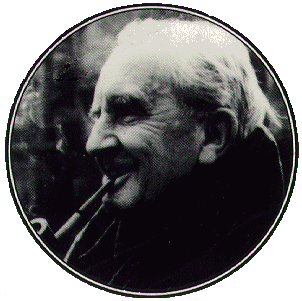Tolkien was a linguistic scholar who was fascinated by language throughout his life. From his earliest years, even as a child, he invented new languages. Many of these featured in his works of fiction but Tolkien also produced verbal compositions in his invented languages purely for the pleasure of doing so, and much of this work remained private.
 In total, Tolkien must have invented dozens of languages over the course of his life, but the degree of sophistication of these languages varied and some value judgement is necessary to distinguish the more primitive and undeveloped of these linguistic constructions from what might be called developed languages. In truth, none of Tolkien's invented languages, at least in his own lifetime, ever developed that fully-fledged richness of vocabulary and grammar that would be required to make it a useable instrument for day-to-day communication. The two which most closely approximated this state, however, were Quenya and Sindarin, two dialects of Elvish.
In total, Tolkien must have invented dozens of languages over the course of his life, but the degree of sophistication of these languages varied and some value judgement is necessary to distinguish the more primitive and undeveloped of these linguistic constructions from what might be called developed languages. In truth, none of Tolkien's invented languages, at least in his own lifetime, ever developed that fully-fledged richness of vocabulary and grammar that would be required to make it a useable instrument for day-to-day communication. The two which most closely approximated this state, however, were Quenya and Sindarin, two dialects of Elvish.
Since Tolkien's death in 1973, others have continued to study and develop these languages. Courses in them exist and have been recognised by the Modern Language Association. Works of literature, usually small poems, have also been composed in them.
Since Tolkien's death in 1973, others have continued to study and develop these languages. Courses in them exist and have been recognised by the Modern Language Association. Works of literature, usually small poems, have also been composed in them.